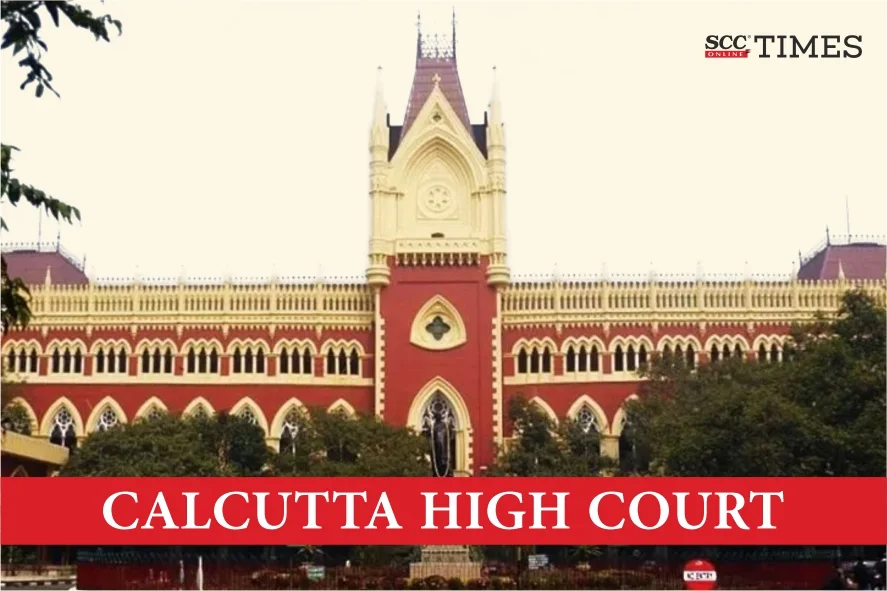Calcutta High Court: In a writ petition seeking to set aside the award passed by the Deputy Registrar of Cooperative Societies and restore the lease based on settlement/compromise agreement, a single-judge bench comprising of Amrita Sinha,* J., emphasised that in the present matter, the compromise was aimed at legalising an illegal act and was not in the interest of the Society and held that “any settlement or compromise to validate an illegal act is not permissible in law.”
In the instant matter, the petitioners filed a writ petition seeking to prevent the enforcement of an order and award passed by the Deputy Registrar of Cooperative Societies dated 19-07- 2022 and 28-07- 2022 respectively. The arbitrator, acting as the Deputy Registrar of Cooperative Societies, found that a lease of scheduled property was executed illegally, without conformity with relevant laws and rules. During the proceedings, Nayara Energy Limited was added as a party respondent but did not appear. Subsequently, the petitioners and certain private respondents entered into a settlement agreement and jointly filed an application to set aside the award and restore the lease agreement, which was challenged through the writ petition. The main issue in the present matter is whether the Deputy Registrar of Cooperative Societies had jurisdiction to pass the award, and whether the settlement agreement reached between the parties could nullify the award.
The Court reviewed the jurisdiction of the Deputy Registrar of Cooperative Societies, and held that under the West Bengal Cooperative Societies Act, 2006 (the Act), the Deputy Registrar’s authority is encompassed within the definition of “Registrar” and has same powers as the Registrar, thus had jurisdiction to pass the award.
“As by operation of law, Registrar includes the Deputy Registrar, accordingly, it does not appear that there has been any violation in complying with the direction passed by the Court at the instance of the Deputy Registrar of Cooperative Societies. Both the authorities enjoy equal powers.”
The Court observed that the settlement agreement sought to validate an illegal act, namely an illegally executed lease, and therefore could not be approved by the Court. The Court asserted that “the said illegally executed instrument cannot be ratified by the order of the Court. The same will amount to approving an act held to be illegal. The asset of the Society cannot be permitted to be squandered in any manner prejudicial to the interest of the Society.” The Court held that any compromise or settlement that promotes an illegal act is impermissible. While acknowledging the parties’ right to enter into settlements, the Court emphasised that such settlements must be in the interest of society and cannot be used to undermine orders passed by competent authorities in compliance with court directions.
“The parties to a proceeding can always enter into a settlement to resolve the disputes between them, but the settlement cannot be to give effect or to promote an illegal act. To the mind of the Court, it appears that the compromise has been entered in between the parties to achieve an illegal act. The mutual settlement does not appear to be in the interest of the Society. On the contrary, it is clearly evident that the same is to legalise an illegal act.”
The Court asserted that the impugned order had been given effect to and acted upon by the parties, and it could not be set aside merely on the consent of the parties. The Court held that “the Court cannot put a seal on any act after the Court has been made aware that the same is illegal and arbitrary.” The Court dismissed the writ petition and connected application, and no relief was granted to the petitioners.
[Ayan Samanta v. State of W.B., 2024 SCC OnLine Cal 2378, order dated 08-03-2024]
*Judgment by Justice Amrita Sinha
Advocates who appeared in this case :
Mr. Milan Chandra Bhattacharjee, Sr. Adv. and Ms. Sulagna Bhattacharjee, Counsel for the writ petitioners
Mr. Srijan Nayak and Ms. Rituparna Maitra, Counsel for the State
Mr. Chittapriya Ghosh and Mr. Kuntal Ray, Counsel for the Respondent 6
Mr. Mihir Kundu, Counsel for the Respondent 7 and 8







